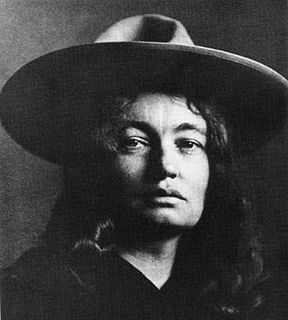A Quote by Mary Hunter Austin
The utmost the American novelist can hope for, if he hopes at all to see his work included in the literature of his time, is that it may eventually be found to be along in the direction of the growing tip of collective consciousness. Preeminently the novelist's gift is that of access to the collective mind.
Related Quotes
The American Dream is individualistic. Martin Luther King's dream was collective. The American Dream says, "I can engage in upward mobility and live the good life." King's dream was fundamentally Christian. His commitment to radical love had everything to do with his commitment to Jesus of Nazareth, and his dream had everything to do with community, with a "we" consciousness that included poor and working people around the world, not just black people.
The healing of ourselves is the healing of the whole nation. Society is only a manifestation of our collective consciousness and our collective consciousness has a lot of fear, violence and hatred in it. ... It is possible to transform our heart...Not much time is needed...(the transformation can be born) the moment you vow to go in the direction of peace and service.
Samadhi is the journey from individual to collective consciousness. The steps of Samadhi are the steps towards reaching the collective consciousness. In meditation, the more we radiate love, compassion, peace, harmony and tranquility, the more is our contribution towards the collective consciousness. The more we positively contribute towards the collective consciousness the more is our progress in Samadhi.
You feel the communion of the collective consciousness in that moment when you're on stage doing something and the audience is absolutely with you. And the audience becomes a collective entity as well. They come in from separate places and socio-economic backgrounds, and places across the world and days that they've had, and then they come together and they become one collective thing, and experience something in a collective way.
Many novelists say, "I'm not a political novelist" - myself included. That's a standard, even a default position. Whereas that divide between art and politics simply isn't possible in many countries. In Hungary, you couldn't be a fiction writer and then, when asked about politics, put your hands up in the air and say "But I'm not a political novelist." If you're a Chinese novelist, a novelist in a country where censorship is such an issue, how do you claim that politics has nothing to do with your writing? It's in your writing, it's shaping your words.
I believe that one can and must hope for a sane society that furthers man's capacity to love his fellow men, to work and create, to develop his reason and his objectivity of a sense of himself that is based on the experience of his productive energy. I believe that one can and must hope for the collective regaining of a mental health that is characterized by the capacity to love and to create.
Socialism is the doctrine that man has no right to exist for his own sake, that his life and his work do not belong to him, but belong to society, that the only justification of his existence is his service to society, and that society may dispose of him in any way it pleases for the sake of whatever it deems to be its own tribal, collective good.




































